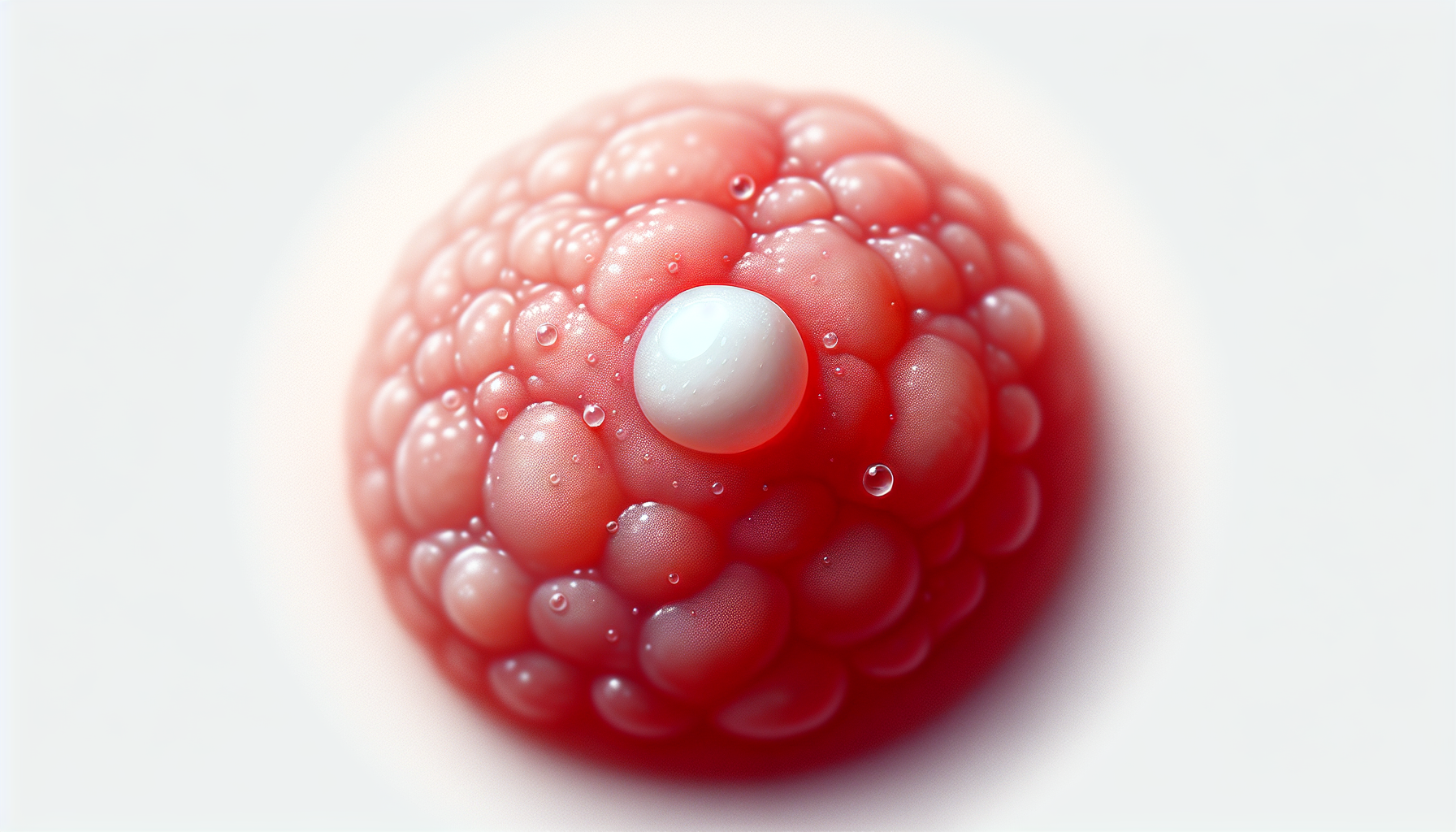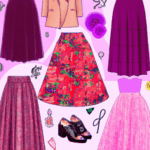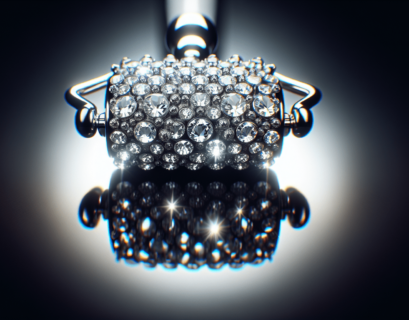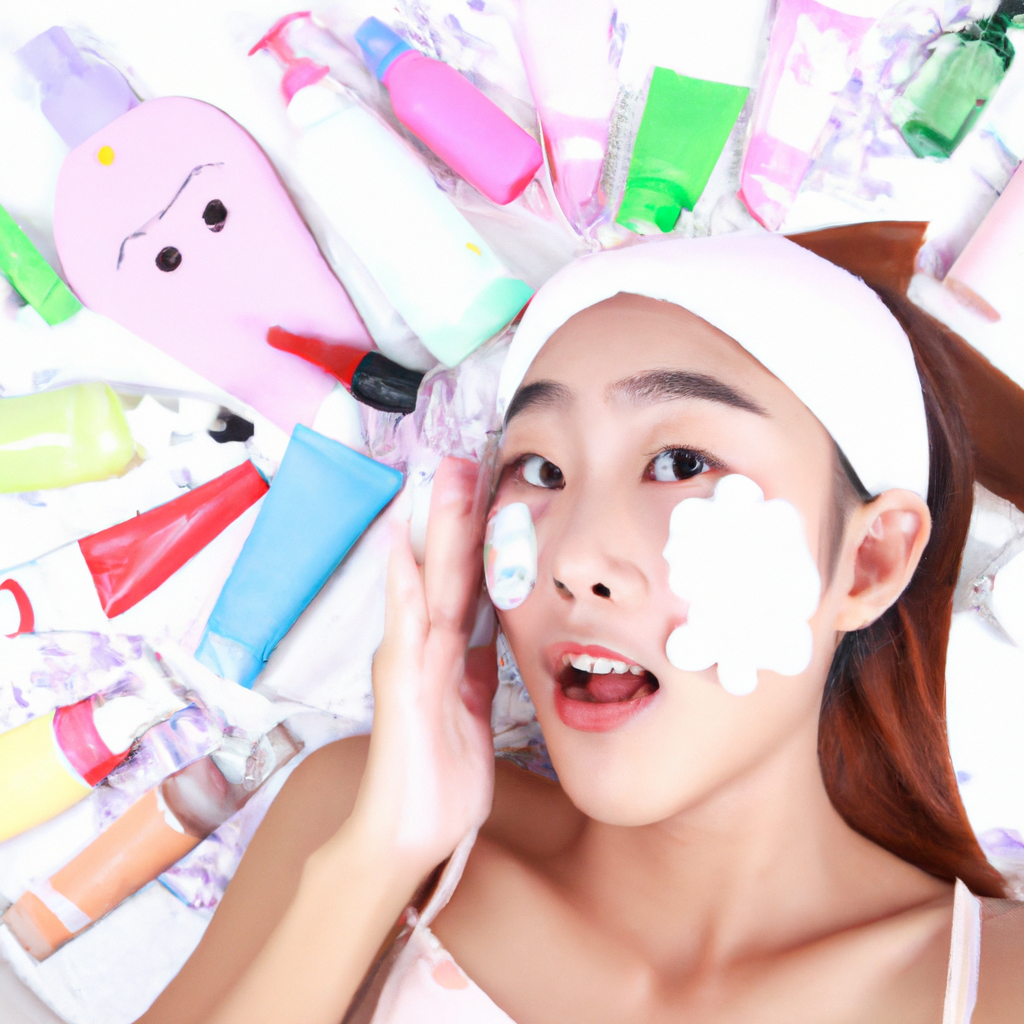Acne can be an incredibly frustrating and confidence-dampening skin condition that affects people of all ages. But fear not, because we’ve got you covered! In this article, we will explore the most effective ways to both prevent and treat acne, giving you the tools and knowledge you need to achieve clear and healthy skin. So say goodbye to those pesky breakouts and hello to a radiant complexion!
Understanding Acne
Acne is a common skin condition that can affect people of all ages, but it is most commonly experienced during puberty. It occurs when the hair follicles become clogged with oil and dead skin cells, leading to the formation of pimples, blackheads, and other blemishes on the face, chest, back, and shoulders. While acne is not a serious medical condition, it can be frustrating and impact one’s self-esteem. Understanding the causes, types, and impacts of acne is essential in finding effective prevention and treatment strategies.
Definition of Acne
Acne, scientifically known as Acne vulgaris, is a chronic inflammatory skin condition that affects the pilosebaceous units of the skin. It is characterized by the formation of various types of blemishes, including blackheads, whiteheads, papules, pustules, nodules, and cysts. These blemishes can range from mild to severe, and their appearance can vary depending on the individual. Acne is caused by a combination of factors, including excess oil production, abnormal skin cell shedding, bacteria, and hormonal changes.
Causes of Acne
There are several factors that contribute to the development of acne. Hormonal changes, particularly during puberty, can increase oil production in the skin. This excess oil, along with dead skin cells, can clog the hair follicles and lead to the formation of acne. Certain bacteria, such as Propionibacterium acnes, also play a role in acne development. Additionally, genetic predisposition, stress, certain medications, and dietary factors can contribute to the onset of acne.
Myths about Acne
There are many myths surrounding acne that can lead to confusion and ineffective treatment. One common misconception is that poor hygiene causes acne. While maintaining a clean skin is important in preventing acne, excessive washing or scrubbing can irritate the skin and worsen the condition. Another myth is that certain foods, such as chocolate or greasy foods, can trigger acne. However, there is limited scientific evidence linking diet to acne. Lastly, popping or picking at acne is believed to help it heal faster, but in reality, it can worsen inflammation, increase the risk of infection, and lead to scarring.
Types of Acne
Acne can manifest in various forms, each with its own distinct characteristics and severity. Understanding the different types of acne can help in determining the appropriate treatment approach.
Blackheads
Blackheads, also known as open comedones, are small, dark-colored bumps that appear on the skin’s surface. They occur when the hair follicles become clogged with oil and dead skin cells. The dark color is not due to dirt but is a result of the sebum (oil) oxidizing upon exposure to air. Blackheads are non-inflammatory and relatively easy to treat.
Whiteheads
Whiteheads, or closed comedones, are similar to blackheads but have a white or flesh-colored appearance. They occur when the hair follicles are completely blocked, preventing the sebum from reaching the skin’s surface. Whiteheads are also non-inflammatory and can be effectively treated with proper skincare techniques.
Papules
Papules are small, red bumps that are slightly raised and tender to the touch. They occur when the hair follicles become inflamed, resulting in a visible redness and swelling. Papules should not be squeezed or popped as it can worsen inflammation and lead to scarring.
Pustules
Pustules are similar to papules but have a white or yellowish pus-filled center. They are often referred to as pimples or zits and are a result of bacterial infection within the hair follicles. Squeezing or popping pustules can spread the infection and lead to scarring.
Nodules
Nodules are larger, painful bumps that develop deep within the skin. They are caused by a buildup of oil, dead skin cells, and bacteria, which results in a severe inflammatory response. Nodules can take weeks or even months to heal and are more likely to leave scars.
Cysts
Cysts are the most severe form of acne and are characterized by large, pus-filled lesions that are deep and painful. They develop when the inflammation and infection spread to deeper layers of the skin. Cysts often leave scars and require medical intervention for proper treatment.
Impacts of Acne
Acne not only affects the physical appearance but also has significant impacts on an individual’s emotional well-being and social life.
Physical Effects
The physical effects of acne can range from mild to severe, depending on the type and extent of the blemishes. Acne can cause redness, swelling, and tenderness of the skin, making it uncomfortable and painful. In severe cases, large nodules and cysts can be highly visible and may cause scarring. The physical discomfort and appearance of acne can significantly impact one’s self-esteem and confidence.
Psychological Effects
Acne can have a profound impact on an individual’s psychological well-being. It can lead to feelings of self-consciousness, embarrassment, and low self-esteem. The visible blemishes and scars can make individuals feel unattractive and may result in social withdrawal, anxiety, and depression. It is crucial to address the psychological effects of acne and provide emotional support to those affected.
Social Impact
Acne can also have a social impact on individuals. People with acne may experience judgment, teasing, or bullying from peers, which can further contribute to feelings of isolation and low self-worth. Acne may affect social interactions, making individuals hesitant to participate in social activities or form new relationships. It is important to create a supportive and inclusive environment to help individuals with acne feel accepted and valued.
Preventing Acne
While acne cannot always be completely prevented, certain lifestyle changes and skincare practices can help minimize its occurrence.
Proper Skincare Routine
Maintaining a proper skincare routine is essential in preventing acne. It is important to cleanse the skin twice a day using a gentle cleanser suitable for acne-prone skin. Avoid harsh scrubbing or exfoliating, as it can irritate the skin and worsen acne. Use non-comedogenic moisturizers and sunscreen to keep the skin hydrated and protected.
Healthy Dietary Habits
Although the relationship between diet and acne is not fully understood, adopting a healthy diet can benefit overall skin health. Incorporate fruits, vegetables, whole grains, and lean proteins into your meals. Limit the consumption of processed foods, sugary snacks, and dairy products, as they may exacerbate acne in some individuals.
Reducing Stress Levels
Stress is known to contribute to hormonal imbalances and can trigger acne outbreaks. Find healthy ways to manage stress, such as practicing relaxation techniques, engaging in hobbies, or seeking support from friends and family. Regular exercise, adequate sleep, and engaging in activities you enjoy can also help reduce stress levels and promote overall well-being.
Regular Exercise
Regular physical activity is not only beneficial for overall health but can also help prevent acne. Exercise promotes blood circulation, which can improve the delivery of oxygen and nutrients to the skin. Additionally, sweating during exercise helps to flush out toxins and unclog pores. Remember to cleanse the skin after a workout to remove excess sweat and bacteria.
Adequate Sleep
Getting enough sleep is crucial for maintaining healthy skin. Lack of sleep can disrupt hormonal balance and increase inflammation, leading to an increased risk of acne. Aim for at least 7-9 hours of quality sleep each night to allow the body to repair and rejuvenate the skin.
Medical Treatments for Acne
In some cases, medical intervention may be necessary to effectively treat acne. Dermatologists can recommend various treatment options depending on the severity and type of acne.
Topical Treatments
Topical treatments are medications applied directly to the skin and can include over-the-counter products or prescription medications. Common topical treatments for acne include benzoyl peroxide, salicylic acid, retinoids, and antibiotics. These treatments work to unclog pores, reduce inflammation, and kill bacteria that contribute to acne formation.
Oral Medications
Oral medications are sometimes prescribed for moderate to severe acne that does not respond to topical treatments. Antibiotics are commonly used to target bacterial infection and decrease inflammation. Hormonal medications, such as oral contraceptives or anti-androgens, may also be prescribed to address hormonal imbalances contributing to acne.
In-office Procedures
In more severe cases of acne, dermatologists may perform in-office procedures to treat acne lesions and promote skin healing. These procedures include extraction of blackheads and whiteheads, drainages of pustules and cysts, and intralesional corticosteroid injections to reduce inflammation.
Light and Laser Therapies
Light and laser therapies are advanced treatments that can effectively target acne-causing bacteria and reduce inflammation. These therapies utilize different wavelengths of light to destroy bacteria, reduce oil production, and promote skin healing. Photodynamic therapy and laser resurfacing are commonly used procedures for treating acne.
Natural Home Remedies for Acne
Natural home remedies can complement medical treatments or serve as alternative options for those seeking more natural approaches to acne treatment.
Apple Cider Vinegar
Apple cider vinegar is a popular home remedy for a variety of skin conditions, including acne. It contains organic acids that help kill bacteria, reduce inflammation, and balance the skin’s pH levels. It is recommended to dilute apple cider vinegar with water before applying it to the skin to avoid irritation.
Honey and Cinnamon Mask
Honey and cinnamon have antimicrobial and anti-inflammatory properties that can help reduce acne and calm the skin. Mix equal parts honey and cinnamon to form a paste and apply it to the affected areas. Leave it on for 10-15 minutes before rinsing off with warm water.
Tea Tree Oil
Tea tree oil is known for its antibacterial properties and its ability to reduce inflammation. It can be applied directly to acne lesions or diluted with a carrier oil before use. However, tea tree oil may cause skin irritation in some individuals, so it is important to do a patch test before applying it to the entire face.
Green Tea
Green tea is rich in antioxidants that can help fight inflammation and bacteria associated with acne. Brew a cup of green tea, allow it to cool, and use it as a facial rinse or apply it to the skin using a cotton ball. Green tea can also be found in skincare products designed for acne-prone skin.
Over-the-counter Acne Treatments
Over-the-counter acne treatments are widely available and can be effective in managing mild to moderate acne.
Benzoyl Peroxide
Benzoyl peroxide is a common ingredient found in acne products and works by killing acne-causing bacteria, reducing inflammation, and unclogging pores. It can be found in gels, creams, and cleansers and is available in different strengths. Start with a low concentration and gradually increase if tolerated well.
Salicylic Acid
Salicylic acid is another popular ingredient in acne treatments. It helps to exfoliate the skin, unclog pores, and reduce inflammation. Salicylic acid is available in various forms, including cleansers, toners, and spot treatments. It is important to follow the product instructions and avoid using it excessively, as it can cause dryness and irritation.
Sulfur
Sulfur is a natural mineral that can be found in over-the-counter acne treatments. It helps to unclog pores, absorb excess oil, and reduce inflammation. Sulfur-based products are available in different formulations, including masks, spot treatments, and cleansers.
Retinoids
Retinoids are derivatives of vitamin A and are effective in treating acne by unclogging pores, reducing inflammation, and promoting cell turnover. Over-the-counter retinoids, such as adapalene, can be found in some acne treatment products. However, prescription-strength retinoids may be more effective for severe acne.
Azelaic Acid
Azelaic acid is a naturally occurring acid that can help normalize the skin’s shedding process, reduce inflammation, and kill acne-causing bacteria. It is available over-the-counter in various formulations, including creams and gels. Azelaic acid is suitable for all skin types and can be used as a standalone treatment or in combination with other acne medications.
Things to Avoid When Treating Acne
While adopting effective treatments is important for managing acne, it is equally crucial to avoid certain practices that can worsen the condition or hinder the healing process.
Popping or Picking at Acne
As tempting as it may be, popping or picking at acne can lead to further inflammation, infection, and scarring. Instead, allow acne to heal naturally or seek professional help for safe extraction.
Using Harsh Scrubs or Exfoliants
Using harsh scrubs or exfoliants can irritate the skin, disrupt the skin barrier, and worsen acne. Opt for gentler exfoliating products or consult with a dermatologist to determine the most suitable exfoliation method for your skin type.
Overwashing Face
Washing the face excessively can strip the skin of its natural oils and disrupt its balance. Stick to gentle cleansers and limit washing to twice a day to maintain a healthy skin barrier.
Heavy Cosmetics
Some cosmetics, particularly those that are oil-based or pore-clogging, can exacerbate acne. Look for non-comedogenic or oil-free products that will not clog the pores. Remove makeup thoroughly before bed to allow the skin to breathe and regenerate overnight.
Certain Foods or Dietary Habits
While there is limited scientific evidence linking diet to acne, certain individuals may find that certain foods or dietary habits worsen their acne. Pay attention to your diet and observe if certain foods trigger breakouts. If so, consider limiting or avoiding those foods to see if it improves your skin.
Managing Acne Scars
Acne scars can persist long after the acne lesions have healed. Fortunately, there are various treatment options available to manage and reduce the appearance of acne scars.
Dermatological Treatments
Dermatologists offer several treatments to target acne scars, such as chemical peels, microdermabrasion, microneedling, laser resurfacing, and dermal fillers. These treatments aim to promote collagen production, resurface the skin, and minimize the appearance of scars. The choice of treatment depends on the type and severity of scars.
Home Remedies
In addition to professional treatments, certain home remedies can help improve the appearance of acne scars. These include applying lemon juice, aloe vera gel, honey, or rosehip oil to the scars. These natural remedies may help fade the scars over time, but results can vary depending on individual skin types.
Preventing Scarring
Preventing acne scars starts with early and effective acne treatment. Avoid picking or squeezing acne lesions to minimize the risk of scarring. Protect the skin from sun exposure by wearing sunscreen daily, as sun damage can worsen the appearance of scars. If scars do develop, seek professional advice to determine the most appropriate treatment options.
When to Seek Professional Help
While many cases of acne can be managed with over-the-counter treatments and lifestyle modifications, there are instances where professional help is necessary.
Persistent Acne
If acne persists despite at-home treatments and lifestyle changes, it may be time to consult a dermatologist. They can assess the severity of the acne, identify underlying causes, and recommend suitable treatment options.
Severe Acne
Severe acne, characterized by deep nodules, cysts, and widespread inflammation, can cause significant physical and psychological distress. A dermatologist can provide more aggressive treatment options and help prevent long-term scarring.
Suspected Side-Effects from Acne Treatments
If you experience adverse reactions or side-effects from acne treatments, such as severe dryness, burning, or persistent redness, it is important to seek professional help. Your dermatologist can evaluate your skin’s response and adjust the treatment accordingly.
Acne Causing Emotional Distress
If acne is causing significant emotional distress, impacting your self-esteem, or interfering with daily activities, it is advisable to seek professional help. Mental health professionals can offer support and guidance to individuals struggling with the psychological impacts of acne.
In conclusion, understanding acne, its causes, types, and impacts is crucial in developing effective prevention and treatment strategies. By adopting a proper skincare routine, maintaining healthy dietary habits, reducing stress levels, and seeking appropriate medical treatments, it is possible to manage and prevent acne effectively. Remember that acne is a common condition and seeking professional help when needed can provide the necessary guidance and support for optimal acne management.







